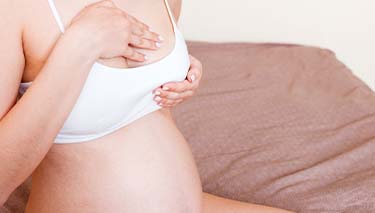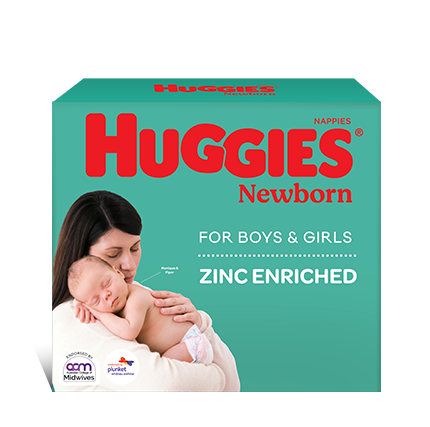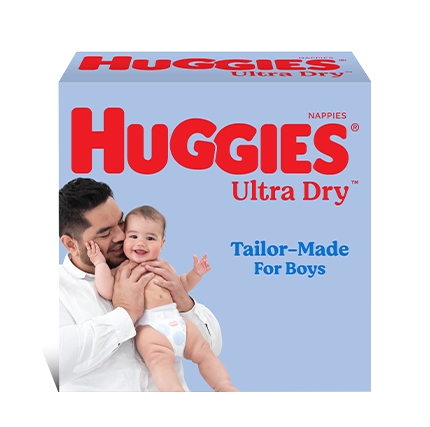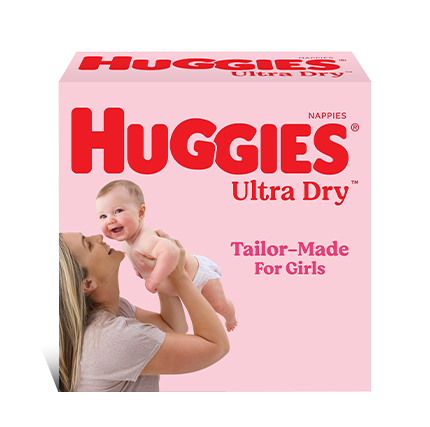Of all the early pregnancy symptoms, bloating and excess wind can be the most awkward. Before you even start to show, bloating may even make you feel uncomfortable and affect your ability to do up your pants.
These symptoms are generally thanks to the increased levels of progesterone and other hormones during early pregnancy.
While progesterone is vital for maintaining a healthy pregnancy, it can also cause digestive problems. Progesterone relaxes the smooth muscle tissue throughout your body, including the tissue in your digestive tract. This helps to slow down digestion and ensure that the nutrients you consume have plenty of time to enter your bloodstream and reach your baby.
Unfortunately, slower digestion often results in more wind and discomfort in the gut especially after eating a large meal. Hard to digest and spicy foods are other culprits.
The causes of bloating in early pregnancy
Wind can build-up in your body for a number of reasons.
In addition to high progesterone levels in early pregnancy, simple things like swallowing, nausea, intolerances and certain foods can also cause wind and bloating.
If you swallow air from eating too quickly, wind can get caught in your digestive tract, causing you to burp. Similarly, when bacteria in your large intestine break down foods, your body produces gas that needs to be released at one end or the other.
Some pregnant women can also get a lot of wind from eating certain foods that they are intolerant or sensitive to. For example, if you are lactose intolerant and drink milk or eat other dairy foods, you may become very bloated. This is because your body doesn t naturally produce enough of the enzyme lactase, to breakdown the lactose (sugar) in dairy products.
Some foods are difficult for many people to digest. After eating these foods, their body, through digestion can produce high levels of gas. These foods include:
- Artichokes
- Broccoli
- Brussels sprouts
- Cabbage
- Cauliflower
- Legumes and beans
- Onions
- Wheat and oat bran
Relieving bloating in early pregnancy
One way of avoiding bloating is to watch what you are eating.
If, after eating a certain food or food group, you notice excessive wind building up, reduce the amount you eat. However, don t cut out vegetables completely from your diet. Vegetables are a very important part of maintaining a healthy pregnancy diet.
You may also help to ease your bloating by following these guidelines:
- Eat smaller meals more often. Smaller meals mean less food exiting from your stomach at a time. This will help to prevent your digestive system from getting overloaded and may help to minimise how much wind you produce.
- Take your time when eating and chew well. Avoid gulping down your food and remember to chew it carefully. This will help to reduce the amount of air you swallow, making digestion easier for your body. This will help to produce less gas.
- Get moving. Exercise during pregnancy is a great way to tone and energise the digestive tract. An efficient digestive tract produces less gas.
- Reduce your bean and legume intake. Beans and legumes are a great source of protein and other nutrients, but try not to overdose on them. They are reasonably difficult for your body to digest and can cause a build-up of gas in your belly.
- Stop chewing gum. This often leads to gut discomfort from swallowing air at the same time as chewing.
If you are experiencing severe pain or cramping in addition to your bloating, tell your healthcare professional. It's important to rule out a more serious complication being the cause.
Last Published* December, 2022
*Please note that the published date may not be the same as the date that the content was created and that information above may have changed since.

















